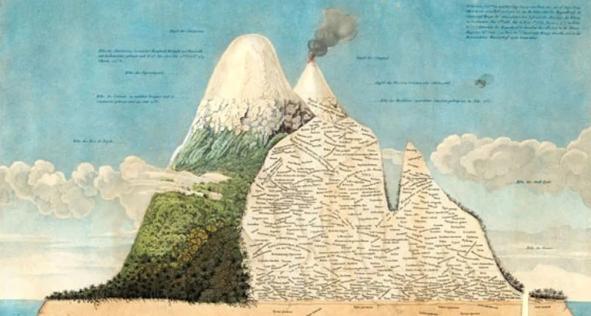Colloques
14/11/2024 | The Emergence of Consciousness
Interdisciplinary colloquium organized by ESPHIN (UNamur's Espace Philosophique), with the collaboration of the Centre Universitaire Notre-Dame de la Paix (cUNDP), the Louvain Institute of Biomolecular Science and Technology,and Louvai4evolution (UCLouvain).
This free colloquium is aimed at:
- Specialists, students or PhD students from various disciplines: neuroscience, biology, anthropology, medicine, psychology, philosophy, ethics, computer science, robotics, mathematics, ...
- People with a passion for interdisciplinarity;
- Humanists and the curious.
Location : Faculty of Philosophy and Letters, rue Grafé 1, Local L22
Ecology of life" seminars
It's obvious to anyone paying attention to the paths taken by a growing number of 21st century thinkers: these paths lead to the living! Whether it's called "ecophilosophy", "ecoanthropology", "ecosophy" or "ecopolitics", this way of thinking about the living is occupying a growing place not only in the media and publications of all kinds, but also in concrete actions in a variety of fields.
Fashion? Ephemeral trend? Collateral effect of "transitionism" tinged with ambient catastrophism? A new attempt at ecological rebellion?
The seminars to which we invite you are intended to be a meeting place - an ecosystem - at the heart of which we will resonate with founding texts of this current that integrates nature, environment, milieu, human and non-human, and straddles the worn-out dualisms of our modern tradition. In other words, we propose to read together some key texts by authors who have attempted to draw lessons from their authentic encounters with other living beings.
Program 2024-2025 | At the Roots of the Human
- On December 13 2024 from 2:00 pm to 4:00 pm (intervention, discussions and convivial moment). Quentin HIERNAUX will introduce plant philosophy and tell us about Humboldt's "Tableau physique des Andes" and his equinoctial geography of plants.
- On February 28, 2025 from 2:00 to 4:00 pm (intervention, discussions and convivial moment), Jean-Baptiste VUILLEROD will address the following theme: Naturphilosophie du végétal : Goethe, Schelling, Humboldt.
- OnApril 11, 2025from 2:00 to 4:00 pm (intervention, discussions and convivial moment), Roland CAZALIS will share his biologist's point of view on the plant world.
Introducing the subject
If we were to take stock of the history of mankind, one trend would certainly stand out: that of a utilitarian relationship with the non-human that continues to grow, and consequently that of a widening gap between the human and the rest.
Humanity, however, has its roots in a living environment that cultivates many other relationships than those we currently privilege, which are dominated by instrumental rationality. Sounding out these forgotten relational universes, without which it is increasingly difficult to think about the human, is one aim of this seminar, which this year will invite you to encounter the plant.
Last year we turned our attention to the communal dimension of living things, starting with the work of Aldo Leopold. In particular, the American forester challenged us with a question from which we should never stray: "just what and whom do we love?". His answer, in the middle of the last century, already confirmed the trend evoked above: "Certainly not the soils, which we allow to be scavenged towards the estuaries. Certainly not the waters, which we assume have no other function than to power turbines, carry barges and carry away garbage. Certainly not plants, whose entire communities we exterminate without batting an eyelid. Certainly not the animals, from which we have already extirpated many of the largest and most magnificent species.". In the face of this lack of consideration for what is not us, the earth ethic proposed by Leopold "modifies the role of homo sapiens, who, from conqueror of the earth-community, becomes a full member and citizen of it". It is thus an ethic that "implies respect for other members as well as for the community as such", and "man is ultimately only a member of a biotic team" ("The Ethics of the Earth", in Almanac of a Sand County).
To help us rediscover this vital sense of community, this year we'll turn to plant lifestyles: those living things that maintain intimate relationships with light, air, water and everything we call "soil". How can we let ourselves be instructed by the plants without which we could not exist? "By making possible the world of which they are part and content, plants destroy the topological hierarchy that seems to reign in the cosmos. They demonstrate that life is a breaking of the asymmetry between container and content. When there is life, philosopher Emanuele Coccia continues, the container lies within the content (and is therefore contained by it) and vice versa. The paradigm of this reciprocal imbrication is what the ancients already called breath (pneuma). To blow, to breathe, means in effect to have this experience: that which contains us, the air, becomes contained within us and, conversely, that which was contained within us becomes that which contains us." (The Life of Plants).
The Tableau Physique (1807) by Alexander von Humboldt:


